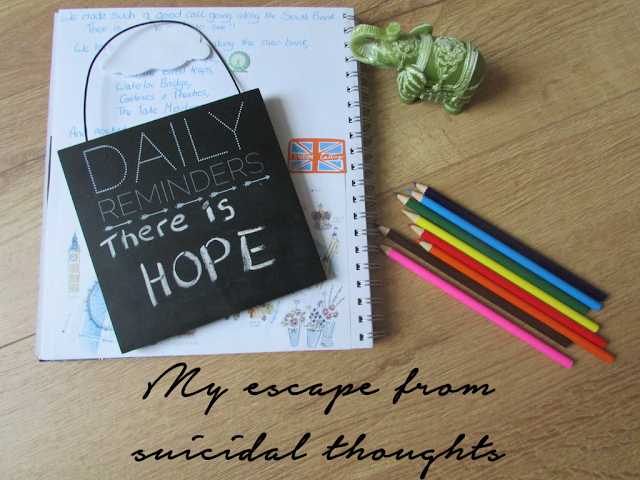As we all start to set goals and New Year's resolutions for 2017, it's worth remembering that the most important promises we can make are to look after ourselves.
 When you set your New Year's resolutions this year, remember that goals don’t have to be big or external to you.
When you set your New Year's resolutions this year, remember that goals don’t have to be big or external to you.
The little things have a huge impact on our mental health, and underpinning the acts of self care that work for you in your goals for the New Year can make all the difference.
 When you set your New Year's resolutions this year, remember that goals don’t have to be big or external to you.
When you set your New Year's resolutions this year, remember that goals don’t have to be big or external to you.
To help you focus on the little things you can implement to improve your
mental health and practice self care, I've thought up a few suggestions that you can include in your 2017 resolutions.
Here are FIVE of the things you can do to look after your mental health in 2017.
- Take time out. A huge part of self care is having me-time. Social interaction is EXHAUSTING for me. No matter how much I like you, I also need time by myself too. I get overwhelmed by social occasions, even a day at work, and need to unwind afterwards with a cup of herbal tea, chilling in bed, or colouring-in.
- Get outside. Fresh air, a walk in the forest, a brief spot of exercise, sitting on a park bench - it doesn't matter what you do when you get outside. Just be there, let the fresh air hit your lungs and you will start to feel calmer and more at peace. This is something I definitely need to do more of in 2017.
- Get offline. Whether it's for one day in a weekend or just one evening a week, try to limit the amount of time you spend in front of a screen, and particularly on social media. Social media can be damaging to your mental health, and often more specifically your self-esteem (I'm talking about all those group photos from a night out that you weren't on), so give yourself a well-deserved break.
- Try something new. Whether it's a CBT class, yoga, or even a gym membership put your money where your mind is and commit to trying something new for your mental health. Sure, you might find it's not for you but that's okay. If you hadn't tried first, you'd never know.
- Make a self care box. Seriously, I cannot plug this enough. Not only is it cute and pretty, but it’s just a relief to know you have a safe place to turn when you’re feeling down. See more on creating a self care box here.
And there are so many others that you could add to this list and commit to in 2017.
I wish you all the best in the New Year - to a happier and more positive 2017!







































